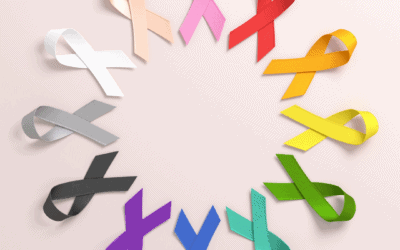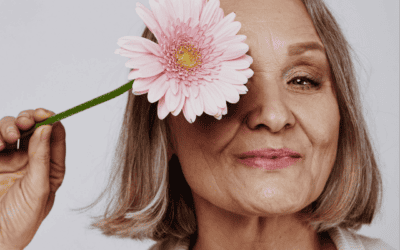Do you know the difference between being tired and being sleepy?
Up until very recently, I did not appreciate the difference.
You see, we all get tired or fatigued during a long day. This is normal. Almost all of us experience some sort of afternoon or post lunch slump. You know, after we’ve had that delicious big meal at lunch, and we go back into the office, and just want to snooze.
What about being sleepy? Do you wake up feeling unrefreshed, or like you could sleep again in the morning? Or could you quite easily fall asleep while sitting idly or listening to someone give a talk? How about falling asleep whilst watching T.V? Or worse, whilst at the wheel ? This is obviously dangerous, and different from being tired.

Is this how you feel in the mornings?
Have a go at this test. Just answer yes or no to these.
1) When you wake after 7 hours of sleep do you feel unrefreshed?
2) Do you wake frequently at night to use the bathroom?
3) Has anyone told you that you snore?
4) Have you got high blood pressure?
5) Has anyone ever observed you stop breathing during sleep?
If you answered yes to these, then you are at risk of having obstructive sleep apnoea.
What is obstructive sleep apnoea?
Obstructive sleep apnoea (OSA) and snoring are breathing disorders, occurring when you sleep because your airway narrows or completely closes.
Snoring is when your airway partially closes and often just creates the noise.
OSA is when your airway totally closes, up to several times during the night. It reduces the oxygen flow, and interferes with a good sleep. To varying degrees it results in excessive daytime sleepiness, high blood pressure, irregular heart beat, and sometimes heart attack and stroke.
Grinding and clenching of teeth can also be associated with OSA.
If you have OSA, then you most certainly snore. However, it is important to know that if you snore, it doesn’t necessarily mean you have OSA.
Other factors contribute to snoring and OSA such as nasal obstructions, narrow throat space and excess weight.
Why should you bother to do something about this?
If left untreated, OSA will have long term health effects, including:
- Increased risk of cardiovascular disease
- Increased risk of Diabetes
- Increased risk of stroke
- Increased risk of Depression
What are your options?

A CPAP machine (Continuous Positive Airway
Pressure) to keep the airway open while sleeping.
First, if you’re worried you have a sleep disorder, speak to your GP.
They can refer you to a sleep physician. If they diagnose you with OSA, they will discuss the treatment options with you which can include:
- weight loss.
- possible referral to an ENT, which may lead to surgery.
- CPAP machine – the Gold Standard for OSA – which is a machine that delivers pressurised air through a mask to open your airway.
- Custom fitted oral device, provided by a suitably trained dentist, which works by moving your lower jaw forward, thus opening that collapsed / restricted airway. This device works best if you have mild or moderate sleep apnoea, or perhaps you’ve tried the CPAP and did not get on with it. It must be prescribed by the sleep physician before your dentist can do this for you.

Oral devices for snoring and obstructive
sleep apnoea.
What I’ve learnt
We all know that exercise and diet contribute to a healthy lifestyle. Not everyone knows or recognises the importance of sleep.
The scientific consensus is that we should be getting, on average, 7 hours of sleep per night.
More and more, it is becoming clear that we must practice good sleep hygiene.
That is:
1) Turning off the blue light a couple of hours before sleep
2) The bedroom should only be for sleep (and reading before sleep only if this helps you drift off)
3) Avoiding caffeine several hours before bed
4) Avoid a heavy meal at least 1 hour before bed
5) Keep the bedroom, cool, dark and comfortable
6) Get some daylight/light exposure in the morning
7) Keep a regular sleep schedule (that is, try and wake up the same time every morning)
A few of these were an eye opener to me. Even if you sleep late at night, waking at the same time is helpful. Your body is amazing – it will tell you when it’s tired and will adjust during the end of the day to get you off to bed at the right time.
It is not good to have that lie-in in the morning – anything more than 30 mins has been shown to make you feel worse during the day! I know – I used to regularly hit that snooze button – and you know what? I felt worse! Funny that.
We also know that shift work, is detrimental to health. It is important that we educate you on good sleep hygiene, so this helps improve the efficacy of any sleep device you may be given.
A final thought…
If you are worried about your sleep – please speak to your GP, or your dentist. A quick referral to a specialist will set you on the right path to the appropriate treatment.

With my SomnoMed goodies from Saturday’s course
I first started providing oral appliances for OSA and snoring almost 3 years ago, and this year I am undergoing some refresher training. I provide Somnomed devices – please check out their website for further information. In October I’ll be going to the Australian Sleep Association 3 day conference where I’ll be hearing from some of Australia’s most experienced dentists, sleep physicians and ENT specialists and psychologists.
Lastly, Sleep Awareness Week is next week: 1st -7th October. Look out for some more sleep advice and tips on our Facebook and Instagram pages.



